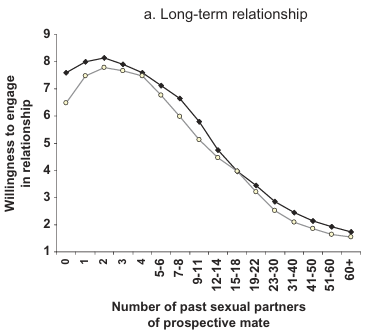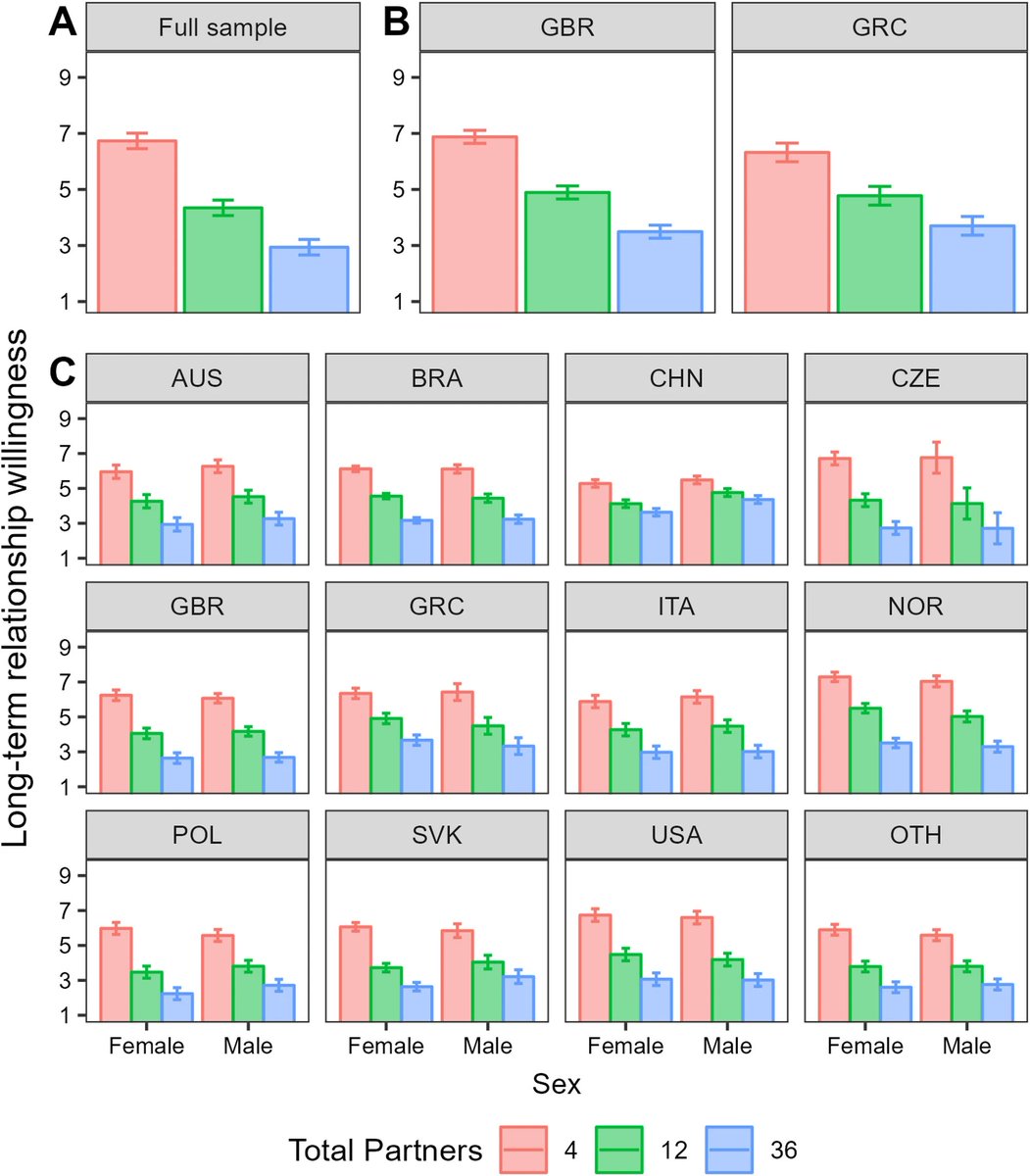Here’s a brief thread 🧵on our latest paper: “Sexual partner number and distribution over time affect long-term partner evaluation: evidence from 11 countries across 5 continents” out now in Scientific Reports () [1/16]nature.com/articles/s4159…
Sexual history is a hot topic online. Often ‘body count’ is discussed very judgmentally – debasing others because their number is “too high” or “too low”. In manosphere-associated podcasts, it’s often used to shame women, giving the impression of a sexual double standard. [2/16]
Some might be tempted to dismiss sexual history discourse as an arbitrary preference. However, there’s no escaping the fact that concerns and gossip about sexual history seem to be found in every language and in every culture. [3/16]
Perhaps, instead, considering a mate’s sexual history is a part of our evolved mating psychology. One designed to help us minimise the risks associated with sex and relationships – such as STDs, investing in a partner who may stray, or butting heads with competitors. [4/16] 

In 2016, @SteveStuWill and I found that people in the UK were sensitive to past partner number in prospective long-term mates. They were most interested in someone with a bit of a past (say 2-3 partners) but not too much. [5/16]
tandfonline.com/doi/abs/10.108…
tandfonline.com/doi/abs/10.108…

Importantly, we found little evidence of a sexual double standard. Men and women had similar “pickiness patterns” – challenging the idea that people apply higher standards to women than men. [6/16] 

Since publishing that study, 2 things compelled me to revisit the topic. First, our original study was just the UK. We don’t know if the effects are generalisable or a “British thing”. Second, a single number ignores a source of nuance – when did those encounters happen? [7/16]
If you had 2 people to choose from for a date, both with 4 past sexual partners. For A, they were evenly spaced out across 5 years. For B, all were met within the last 6 months. Who would you pick? Context clearly matters even in a thought experiment. [8/16]
So that’s what we set out to do. A new study testing not just past partner number, but how distribution over time affected evaluation as a long-term mate. Participants rated the desirability of a partner based on a pictorial representation of their sexual history. [9/16]
Using line figures we tested the effect of someone having 4, 12, or 36 past partners each across 15 distributions ranging from “they all happened very recently” to "equally spaced out over time” to “they were bunched together, but a long time ago”. [10/16] 

That is, the figures showed participants whether someone was decreasing or increasing their encounters with new sexual partners over time.
To examine cultural differences, we tested >5k participants in 11 countries from Australia to Brazil. Super interesting results! [11/16]
To examine cultural differences, we tested >5k participants in 11 countries from Australia to Brazil. Super interesting results! [11/16]
First, we replicated the past partner number effect. In every country, 12 partners were less desirable than 4, and 36 less than 12.
Second, we found greater interest in those with a decreased frequency of new partners over time. Plus, an interaction – number effects were smaller when frequency decreased. [12/16]

Second, we found greater interest in those with a decreased frequency of new partners over time. Plus, an interaction – number effects were smaller when frequency decreased. [12/16]


So “when” adds more information than simply “how many?” This holds true in every country sampled. Of course, distribution effects had limits – at no distribution was 36 partners as desirable 4. But the difference narrowed. There were also cool curvilinear effects here. [13/16]
Importantly, we found no real evidence of a sexual double standard. Where there were sex differences, they were small and in inconsistent between cultures. [14/16]
Together, the results challenge to the idea that women are held to different standards than men. They also show that people make holistic judgements about sexual history when evaluating a mate, offering a clear counterpoint to the labelling common in manosphere rhetoric. [15/16]
You can find the paper, fully open access here: . Thank you to my wonderful (and patient) collaborators including @CostelloWilliam @SteveStuWill @LeifKennair @DrDaniS @jarkaVarella @SexyIsntSexist @varella_marco @Marta7Kowal [16/16]nature.com/articles/s4159…
@CostelloWilliam @SteveStuWill @LeifKennair @DrDaniS @jarkaVarella @SexyIsntSexist @varella_marco @Marta7Kowal @threadreaderapp unroll for those in need!
• • •
Missing some Tweet in this thread? You can try to
force a refresh




